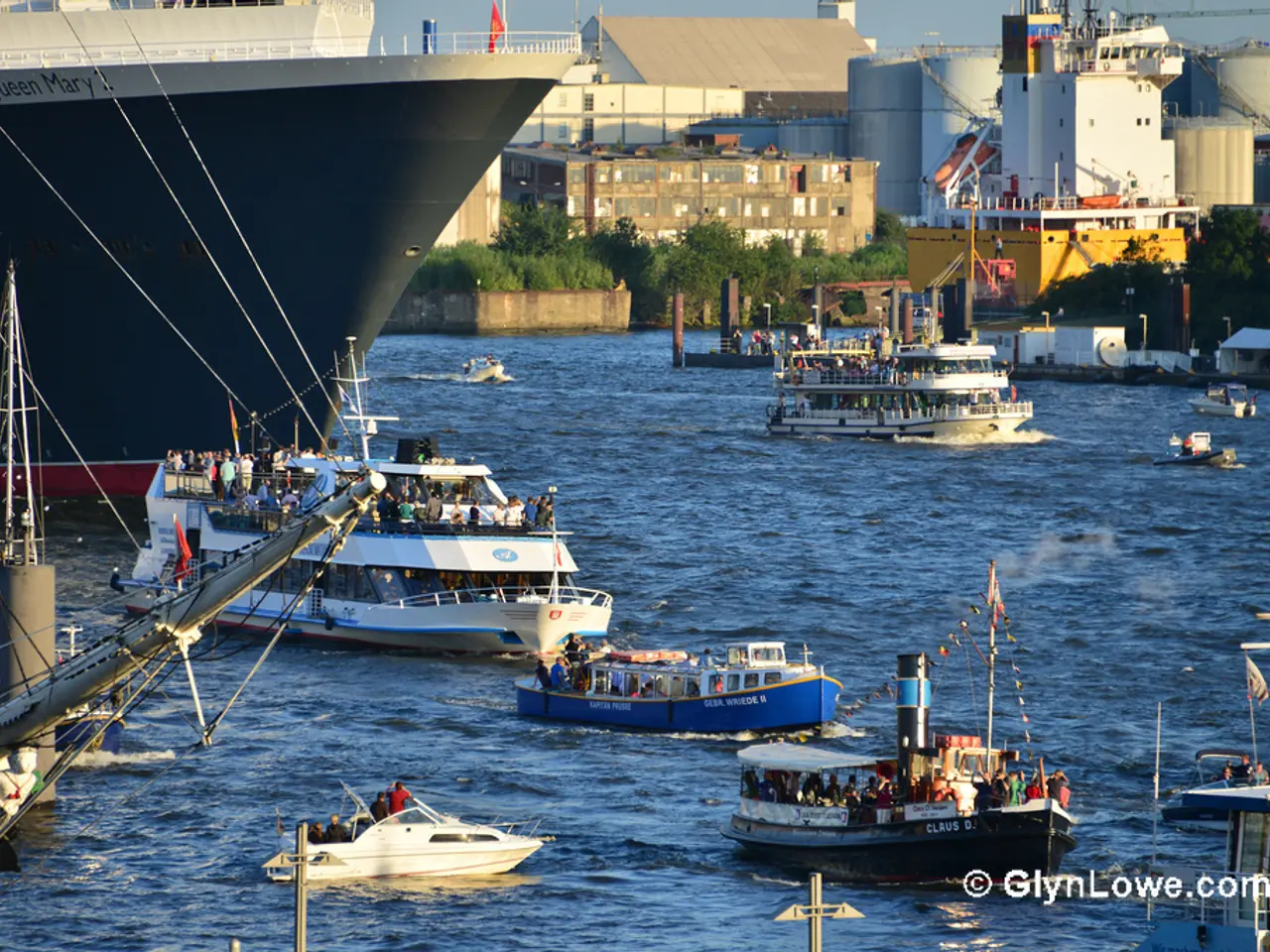Israel's Prime Minister Netanyahu seeks full control over Gaza, prompting Germany to establish a truce between Israel and the region.
In a significant move, Federal Chancellor Friedrich Merz has imposed a partial arms export ban on Israel, citing concerns over the country's expanding military actions in Gaza and the escalating humanitarian crisis.
The ban, implemented in 2022, applies to arms goods that could potentially be deployed in the Gaza Strip. This decision comes in response to the "harsher military action" of the Israeli army in the region, which has resulted in a high civilian death toll, widespread destruction, and a starvation risk, particularly for children in the densely populated enclave.
The German government's concern is rooted in the apparent disconnect between Israel's military campaign and viable humanitarian or political outcomes. Chancellor Merz emphasized that while Israel has the right to self-defense, the ongoing military campaign and plans for occupation make it "increasingly difficult" for Germany to see how Israel's goals—disarming Hamas and returning hostages—could be achieved.
The partial arms export ban is seen as a "warning shot" in response to these consequences. It reflects growing unease within Germany about continuing unrestrained arms supplies amid what multiple international bodies and experts describe as violations of international humanitarian law and potential risks to civilian populations.
The federal government has also urged Israel to enable comprehensive access for aid deliveries, including for UN organizations and other non-state institutions. The government is deeply concerned about the ongoing suffering of the civilian population in the Gaza Strip and has emphasized the need for humanitarian aid to be provided to the civilian population outside the combat zones.
Meanwhile, Israel's security cabinet has approved a plan to defeat Islamic Hamas in the Gaza Strip. Disarmament of Hamas is indispensable, according to Chancellor Merz. However, he has urged the Israeli government not to take any further steps towards the annexation of the West Bank.
The release of hostages and targeted negotiations on a ceasefire are priority for Germany. Furthermore, Merz has stated that Hamas must not play any role in Gaza in the future.
This policy shift indicates Germany balancing its historical and political alliance with Israel against mounting domestic and international pressure to address the humanitarian crisis unfolding in Gaza. The decision underscores the growing importance of humanitarian concerns in Germany's foreign policy decisions.
[1] German Federal Government Statement on Arms Exports to Israel (2022) [2] German Foreign Office Press Release on Gaza (2022) [3] United Nations Report on Violations of International Humanitarian Law in Gaza (2022)
The partial arms export ban by Germany in 2022, applicable to goods potentially destined for the Gaza Strip, reflects its growing unease about continued unrestrained arms supplies amidst allegations of violations of international humanitarian law and risks to civilian populations. This policy shift, rooted in concerns over Israel's expanding military actions in Gaza and the resulting humanitarian crisis, also indicates Germany balancing its historically political alliance with Israel against mounting domestic and international pressure to address the ongoing suffering in Gaza, thereby underscoring the growing importance of humanitarian concerns in German foreign policy decisions.
War-and-conflicts, politics, and general-news have all been addressed in the decision to impose the partial arms export ban on Israel, as it involves questions of military action, political outcomes, and humanitarian crises.







